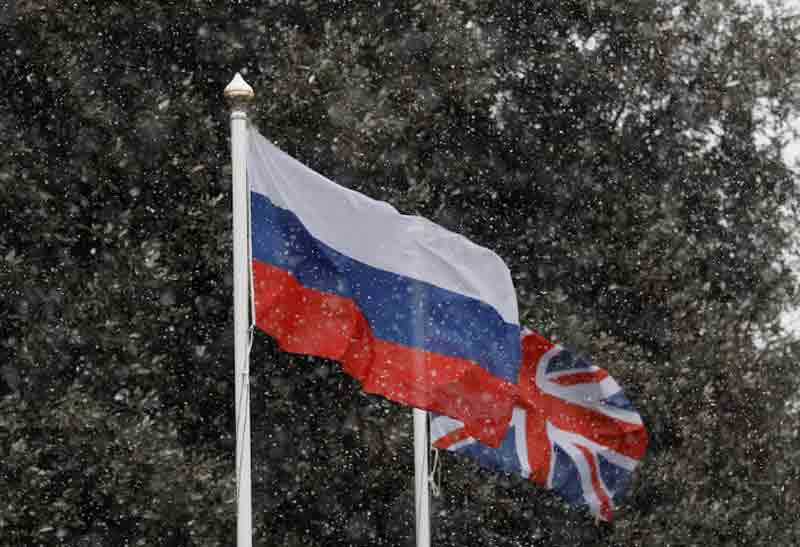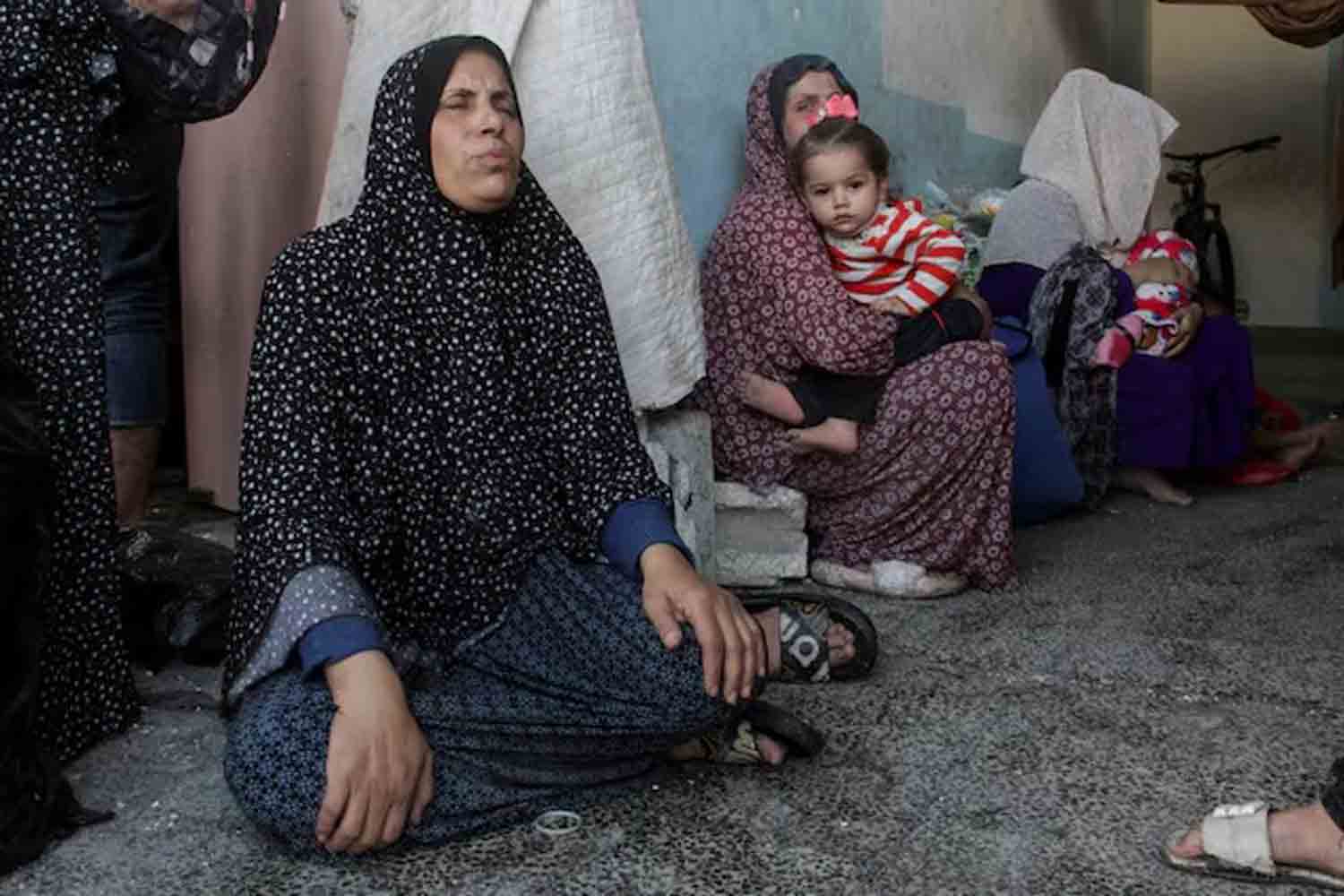Two British diplomats have been expelled amid a spying controversy, accompanied by a scathing statement from Russia‘s foreign intelligence service, which labeled Britain as “a warmonger.” Additionally, a senior ally of Vladimir Putin has threatened to confiscate UK assets located in Russia.
As the United States, under Donald Trump, attempts to mend relations with Moscow and facilitate peace between Russia and Ukraine, Britain has been designated as Russia’s primary adversary.
This designation is one that Britain has intermittently held for the past two hundred years. In a notably charged public statement on Monday, Russia’s foreign intelligence service asserted, “London today, similar to the period leading up to both World Wars of the last century, is acting as the principal global ‘warmonger’.” The agency accused London of undermining Trump’s peace efforts in Ukraine.
“The time has come to reveal their true intentions and deliver a clear warning to ‘perfidious Albion’ and its elites: your efforts will not prevail,” stated the agency, known as the SVR.
The statement did not provide further details regarding its grievances with Britain’s actions prior to the two World Wars. While Moscow has directed particularly harsh criticism towards Britain, it has also intensified its rhetoric against the European Union, especially targeting French President Emmanuel Macron, whose discussions of France’s nuclear capabilities in response to a perceived Russian threat have provoked the Kremlin’s ire.
Russia’s invasion of Ukraine in 2022 has escalated into Europe’s largest and most lethal conflict since World War II, resulting in hundreds of thousands of casualties, displacing millions, and sparking the most significant confrontation between Moscow and the West in decades.
Throughout much of the conflict, Russia criticized Washington for its support of Kyiv. However, this stance has shifted with Trump in office.
Three Russian officials, who requested anonymity due to their lack of authorization to speak publicly, indicated that Britain is now viewed as Moscow’s primary adversary. One official expressed frustration, claiming that London is “fueling chaos and war” in Ukraine. Another characterized Britain as the leading force in the West in rallying opposition against Russia.
Prime Minister Keir Starmer’s recent comments about potentially deploying British troops and aircraft to Ukraine as part of a peacekeeping mission have provoked ire among senior Russian officials. His hosting of a meeting for the “coalition of the willing,” along with his direct lobbying of Trump to support Ukraine, has also drawn criticism.
Russian Foreign Minister Sergei Lavrov has accused Starmer of escalating tensions at a time when Trump was attempting to de-escalate them. British diplomats in Russia are aware of the challenges they face, as reciprocal expulsions have already reduced the staff at the British embassy by at least ten diplomats since the war began. Currently, neither country has defense attaches stationed there.
On Monday, Russia’s FSB security service accused a British diplomat and the spouse of another diplomat of espionage, leading to their expulsion—an allegation that London dismissed as “baseless.” In response, Britain summoned the Russian ambassador in London and expelled a Russian diplomat along with a diplomatic spouse.
The British Foreign Office stated on Wednesday, “It is evident that the Russian state is actively working to push the British Embassy in Moscow towards closure.”
Russia’s Foreign Ministry and the British Foreign Office have not yet responded to requests for comments.
“HOSTILE ACTION”
The head of Britain’s MI6 Secret Intelligence Service has described Russia’s actions as “staggeringly reckless” sabotage occurring on British and European territory. Recently, a London court convicted three Bulgarians for their involvement in a Russian espionage unit. Additionally, a British man confessed in court to committing arson at a Ukrainian-owned warehouse in East London, acting on behalf of Russia.
A British investigation has attributed the 2006 poisoning of Kremlin critic Alexander Litvinenko in London to Russia, involving a radioactive substance. Furthermore, London has accused Moscow of being responsible for the 2018 poisoning in Salisbury, which utilized the Novichok nerve agent. Russia has denied these allegations.
Some Russian politicians have insinuated, without presenting evidence, that Britain assisted Ukraine in executing sabotage operations against Russian targets, including an incident on the bridge connecting Crimea to mainland Russia that resulted in two fatalities in 2023. One of the three Russian officials claimed that Starmer, similar to Boris Johnson before him, is leveraging the Ukraine conflict to divert attention from domestic issues. London maintains its position of seeking a “just peace” for Ukraine rather than compelling it to surrender.
‘THE ENGLISHWOMAN RELIEVES HERSELF’
Nationalist commentators on Russian state television have begun asserting that London has sought to undermine Moscow for centuries. Although London became a favored destination for Russian investments following the Soviet Union’s collapse in 1991, the roots of distrust towards Britain can be traced back to the Crimean War of 1853-1856, during which Britain was part of an alliance that defeated the Russian Empire.
In light of recent perceived offenses by Britain, Russian politicians have revived a 19th-century phrase that characterizes Britain’s aggressive foreign policy towards Russia during Queen Victoria’s reign: “The Englishwoman relieves herself” on Russia, a saying that implies Britain’s ongoing efforts to disrupt Russian interests.
This emerging anti-British sentiment, coupled with a noticeable reduction in anti-U.S. rhetoric in state media, may leave London in a more vulnerable position. As Russia enters its fourth year of conflict, with its economy under strain, there is a growing belief in Moscow that the new approach from Trump could present an opportunity for peace on terms favorable to Russia.
Some lawmakers have suggested that companies from “hostile” nations, including Britain, should be barred from returning even if Western sanctions are lifted following a potential peace agreement with Ukraine, or face significantly stricter conditions if they do.
Vyacheslav Volodin, a close ally of Putin, recently emphasized the necessity of reclaiming funds from Britain, referring to the interest accrued on approximately $26 billion in frozen Russian assets in the UK, which London has been directing to Ukraine. According to UK government data, British-Russian trade has plummeted from over £16 billion in 2021 to just above £2 billion in 2023, with oil giant BP incurring losses exceeding $20 billion due to its exit from Russia in 2022. Meanwhile, other British firms, such as the British-Swedish pharmaceutical company AstraZeneca and GlaxoSmithKline, continue their operations in the country.
BRITISH LOCOMOTIVE
Some individuals in Britain may find it surprising that Moscow attributes significant global importance to London’s intelligence agencies and special forces. However, one of three Russian officials noted that London has demonstrated its capability to lead by example regarding Ukraine. “They are the driving force, pulling others along with them,” the official remarked.
Britain has been proactive in supporting the Ukrainian military by providing training and financial assistance. It was the first nation to commit Western-made main battle tanks to Ukraine and the first to supply long-range cruise missiles when other countries were hesitant to act. This decisive support has provoked strong reactions from Russia.
“If Britain is currently launching missiles at our territory from Ukraine, I believe this is a valid reason for Britain to cease to exist,” stated Andrei Gurulyov, a pro-Putin lawmaker and former military leader, during a January broadcast on state television.
Russia’s efforts to portray Britain as a warmonger align with President Putin’s claim that former British Prime Minister Boris Johnson convinced Ukrainian President Volodymyr Zelenskiy to abandon a potential peace agreement in 2022, a claim both Johnson and Zelenskiy have denied.
While this narrative might seem to undermine the assertion that Britain poses a threat to Moscow, Russian politicians and commentators have been quick to highlight the diminished size of the British military, which currently comprises fewer than 75,000 full-time soldiers, compared to Russia’s estimated 1.1 million active personnel. State television host Yevgeny Kiselyov humorously remarked on his flagship program this month that the entire British army could fit within London’s Wembley Stadium.
Discover more from Defence Talks | Defense News Hub, Military Updates, Security Insights
Subscribe to get the latest posts sent to your email.





